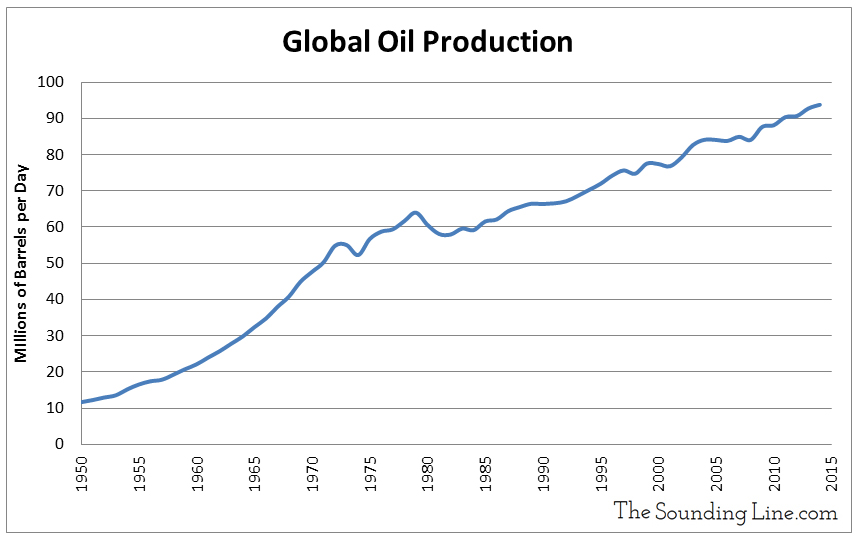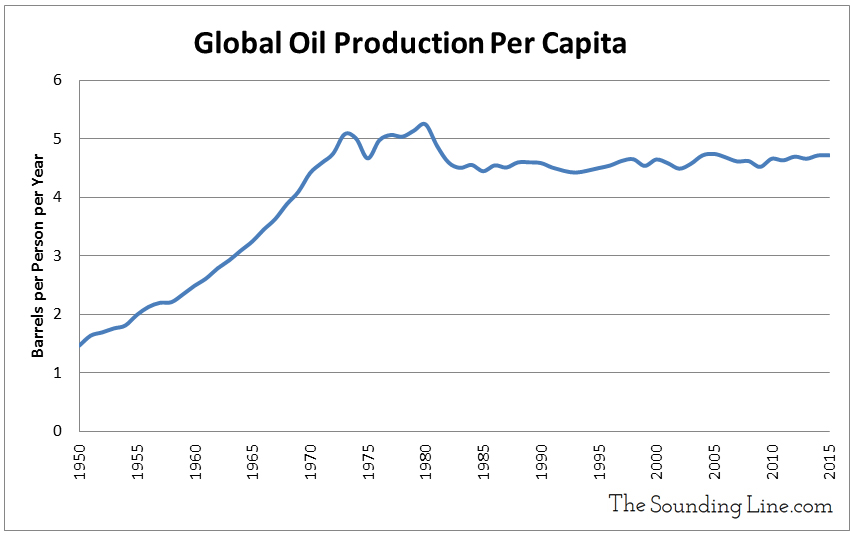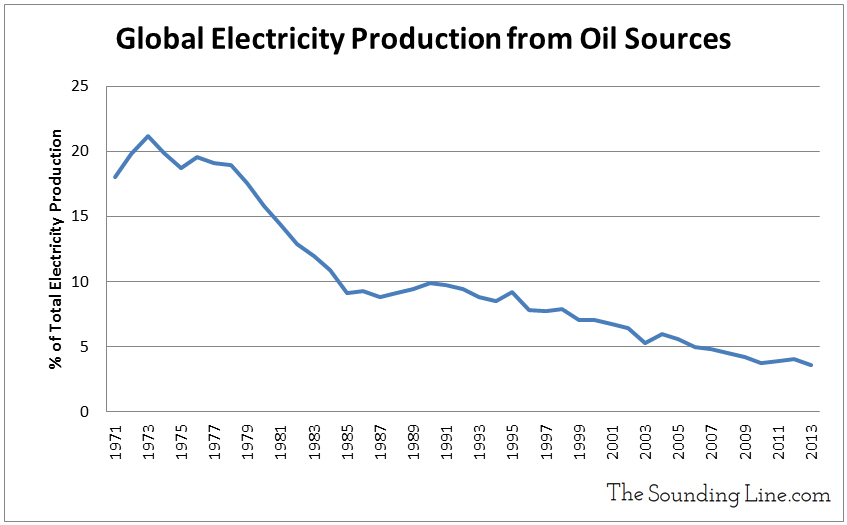Submitted by Taps Coogan on the 3rd of December 2016 to The Sounding Line.
Enjoy The Sounding Line? Click here to subscribe for free.
Long gone are the days of popular hysteria over ‘peak oil,’ the theory that global oil production was nearing its theoretical peak. The US shale oil revolution has essentially destroyed the predictions of imminent oil shortages and ushered in an era of exactly the opposite: persistent oil over production. Yet despite the allaying of peak oil fears, one thing has remained strikingly unchanged: per capita oil production. While total global oil production is still growing robustly, as the chart below shows, this is only half of the story. One must also consider the rising world population and its increasing energy demands.

When we look at global oil production on a per person basis, a very different trend emerges. After peaking in 1980, per capita global oil production declined and has flat-lined since 1982. Despite all of the hoopla about plentiful new oil prospects and resurgent American production, on a per capita basis, little has changed.

Meanwhile emerging markets have been working furiously since the 1980s to raise hundreds of millions of people out of poverty. We have seen the rise of large consumer classes in China, Brazil, India, Mexico and many other countries. Evidencing this trend, from the 1990s to today, global automobile sales have nearly doubled from about 40 million to 75 million units. With a rise out of poverty comes increasing demand for cars and transportation inevitably powered by oil.
These two seemingly contradictory trends raise an important question: if per capital oil production hasn’t increased since 1980, how can an increasing portion of a growing population be rising out of poverty and consuming more oil?
The answer is that the oil being consumed by the bourgeoning global consumer class has been freed up by nearly eliminating oil based electricity production. Globally, we haven’t produced more oil on a per capita basis; we have simply shifted oil usage from use in electricity, where it is easily replaced by coal and natural gas, to transportation where it is difficult to be replaced by other energy sources. Globally, electricity production from oil fell from 21% in 1973 to less than 4 % today. Improvements in fuel economy on the over hand have been mostly hype. A rough figure suggests that global automobile fuel economy has improved by less than 15% since the 1980s.

Therein lies the problem. With nearly all of the oil that was once producing electricity now being used as transportation fuel, there really isn’t much slack left in the system for the oil demand associated with further growth of the world’s rapidly growing middle class. No longer can increased consumer demand for oil be offset by declining oil used for electricity production and despite all of the news about shale oil and tar sands, per capita oil production hasn’t increased in 36 years. That leaves only increased efficiency to free up per capita oil resources in the future and all indications suggests that that is a very slow road.
The long and short of it is that there are real constraints to accommodating the energy needs of a growing global middle class. We may not have reached peaked oil in the strict sense of the term, but it certainly looks like we have reached peak per capita oil and, as such, we may be soon reaching the limits of the expanding global consumer class. To avoid this fate, oil production would have to increase much faster than it has in the past 36 years, requiring both sustained advancements in exploration and production and much higher prices. For now, we are witnessing neither.
P.S. If you would like to be updated via email when we post a new article, please click here. It’s free and we won’t send any promotional materials.
Would you like to be notified when we publish a new article on The Sounding Line? Click here to subscribe for free.

